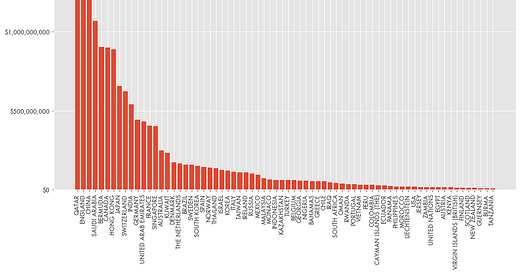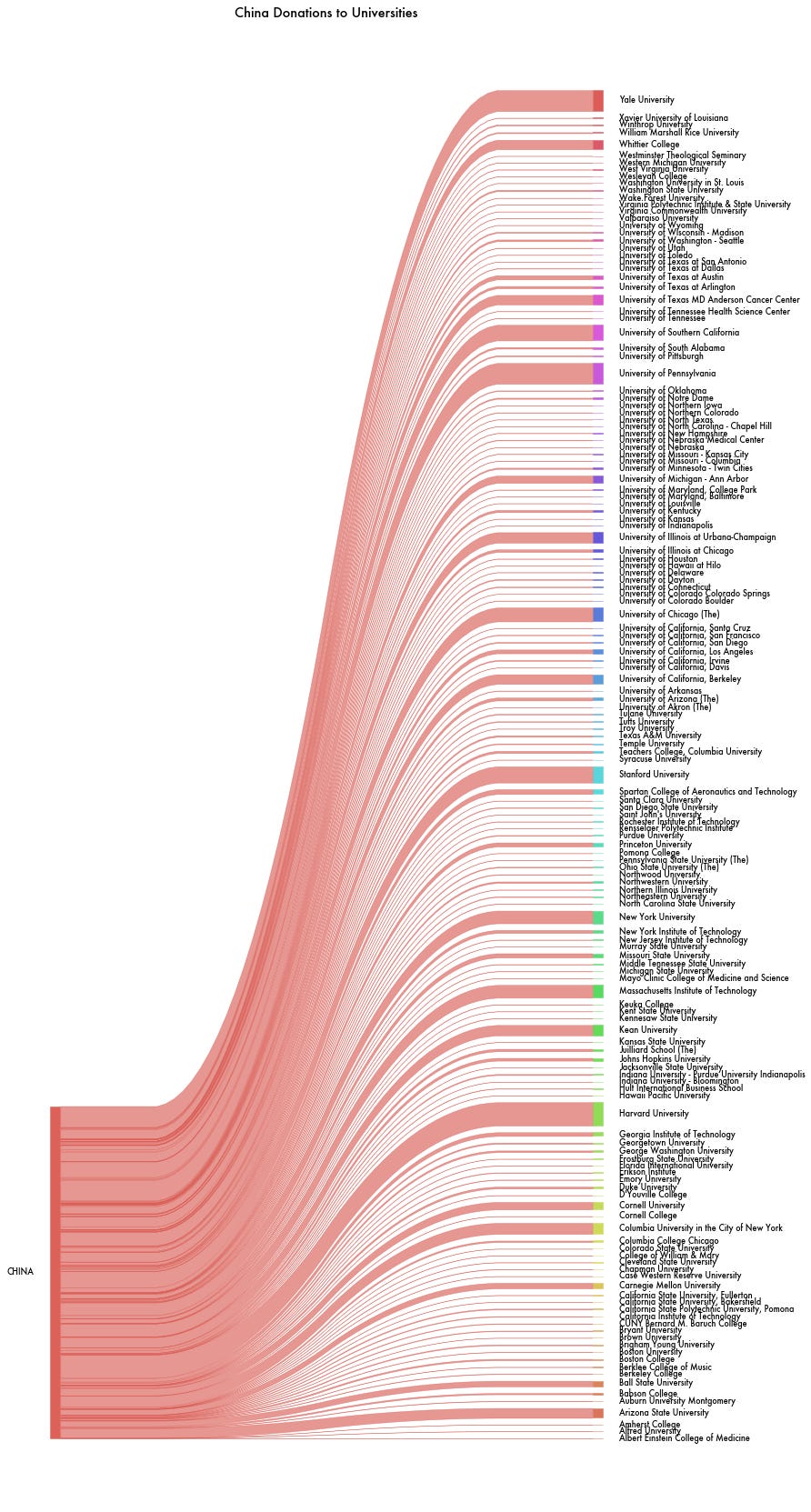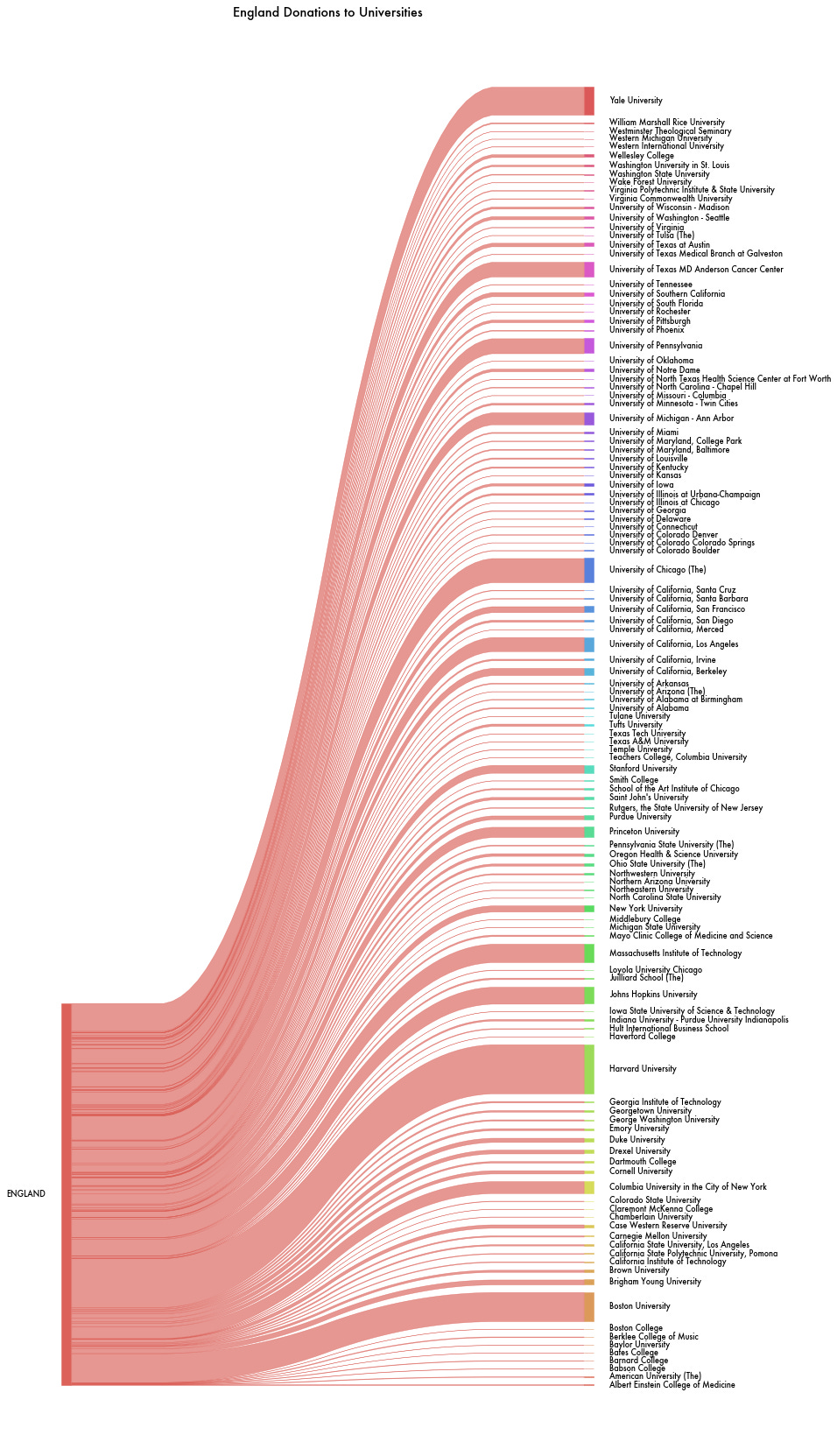Foreign Contributions to Universities Dominated by a Few Countries
Total foreign contributions—as donations or general payments—to American universities in 2019 almost topped $4 billion. That may only be a sliver of the over $149 billion provided by the federal government in 2018, but it is already double what it was five years earlier.
While 155 countries donated over the past five years, a handful of countries stand out for the largesse of their contributions, to specific universities and to a wide array of other schools. While the type of schools ranged from small private institutions to large public schools, it was largely schools with prominent technical or medical colleges and Ivy League institutions.
Qatar in particular sticks out for providing over $2.7 billion in total—over $1 billion more than the next largest contributor. Much of that largesse went to schools like Cornell, Carnegie Mellon, Texas A&M, Northwestern, and Georgetown, but that may be related to how those schools also operate separate campuses in the middle eastern country—Weill Cornell Medical College, Carnegie Mellon University in Qatar, Texas A&M University at Qatar, Northwestern at Qatar, Georgetown at Qatar.
China, along with Hong Kong, donates to a wide array of schools, including to numerous large public state universities as well as prominent Ivy League universities like Yale and Harvard. Similarly, England donates to a largely spectrum of schools, with prominent Ivy League universities like Yale and Harvard among the largest recipients.
One country with heavy university donations that might not be expected is Bermuda. The small island country has sent almost $1 billion to academia over the past five years, three-quarters of which, $750 million, was going to Carnegie Mellon. That is also the same amount the Bermuda-based chip manufacturer Marvell Technology Group settled with the university for in 2016 over patent infringement on chip technology that was developed at the school.
In recent years, the Department of Justice brought numerous charges against U.S. academics connected to advanced scientific research for failing to report funding from the Chinese government through the country’s Thousand Talents Program. Besides potential tax fraud for neglecting to report income, the charges sometimes include fraud related to their university grants, which require the reporting of foreign income.
U.S. officials accused the Thousand Talents program as simply being a vehicle for intellectual property transfer by paying off academics.
The DOJ also also recently brought charges against various individuals and schools for fraud and bribery surrounding a scheme to admit unqualified students, some of which were international. Although those cases involve payments of wire fraud, they didn’t involve payments from a country to the school itself.







